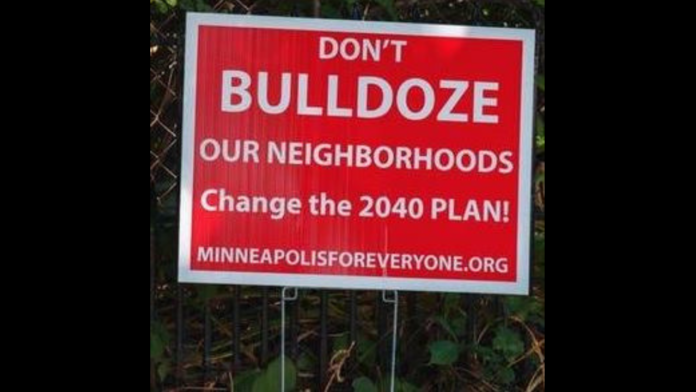Minneapolis’ development plan for the next 20 years includes efforts to tackle racial exclusion in housing.
On Friday, the City Council voted 12-1 to approve the 2040 Comprehensive Plan. According to the city’s official release, the overarching theme of Minneapolis’ growth will be focused on “undoing barriers created by a history of policies in the city that have prevented equitable access to housing, jobs and investments, resulting in significant disparities between white people and people of color.”
One of the most controversial elements of the plan is a push to allow land currently zoned for single-family homes to be turned into multi-unit properties.
“Racial disparities persist in all aspects of housing,” the plan reads. “Until the 1960s, zoning regulations, racially discriminatory housing practices, and federal housing policies worked together to determine who could live in single-family houses in ‘desirable’ neighborhoods. These determinations were based on race and have shaped the opportunities granted to multiple generations of Minneapolis residents.”
To solve the “racially discriminatory housing practices,” the comprehensive plans allows for owners to subdivide up to three units per lot. To support the upzoning, the plan also eliminates parking minimums. Some areas, like transit corridors, could be re-zoned for high-density housing.
Many residents have expressed concern with how the plan will change their neighborhoods — the plan could impact three-fourths of Minneapolis’ over 400,000 residents who currently live in neighborhoods zoned for single-family homes. Fears ranging from neighborhoods being bulldozed to a shortage of starter homes have caused people to push back on the plan.
Environmental groups joined those expressing concern over the city-wide upzoning. Smart Growth Minneapolis, the Audubon Chapter of Minneapolis, and Minnesota Citizens for the Protection of Migratory Birds sought a restraining order to prevent Friday’s vote until further environmental impact studies have been conducted, but the order was rejected.
Despite the wide-ranging concerns, the plan was passed on a near-unanimous vote. and now goes to the Metropolitan Council for review before being sent back for a final vote from the city council.
* * * *
Do you like Alpha News? Help us reach our year-end goals by donating today.


















